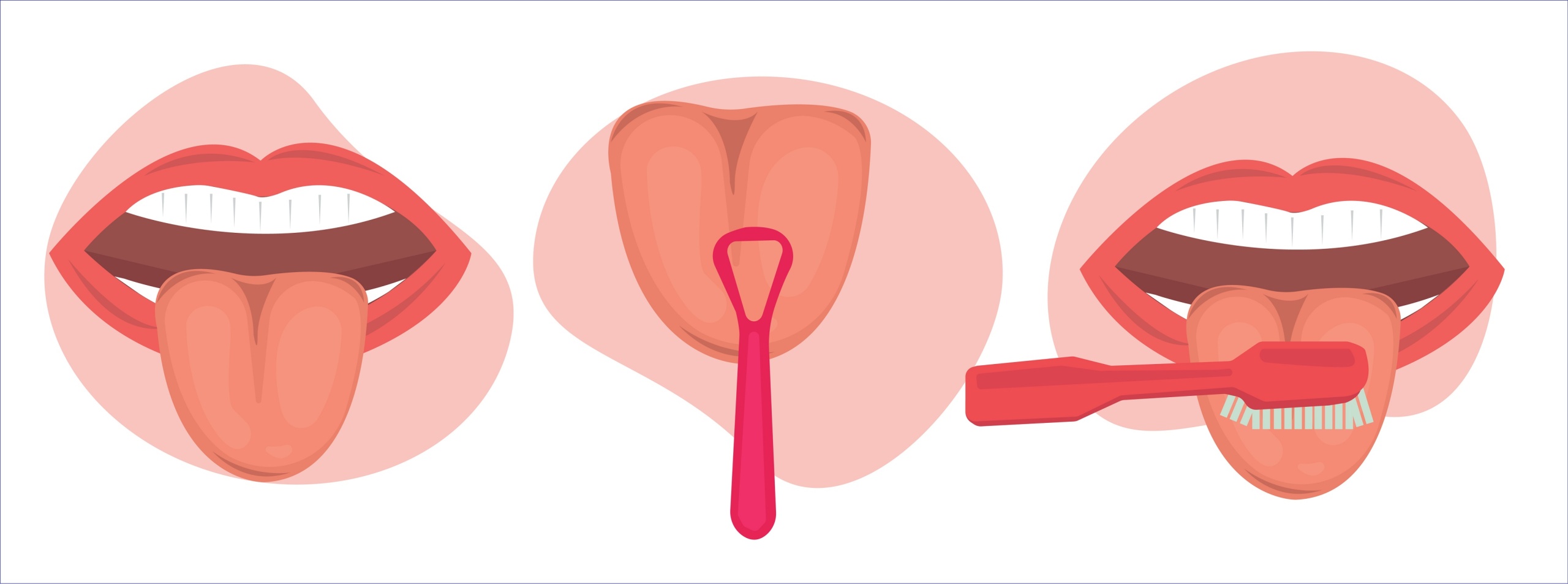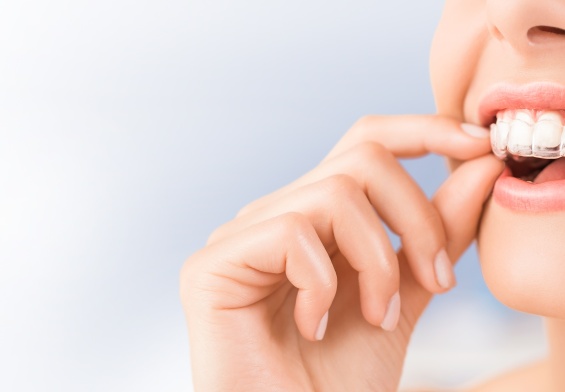If you want to stay healthy, you need to think about all aspects of your body, including your mouth. But maintaining your oral health goes a little further than just brushing and flossing every day. While many people focus on these two aspects, they overlook another huge part of oral hygiene—the tongue. This is where a tongue cleaner, also known as a tongue scraper, comes into play. Using a tongue cleaner regularly can significantly benefit your oral health, and dentists in Livingston and beyond recommend it as part of a larger dental care routine.
What is a Tongue Cleaner?
A tongue cleaner is a small tool you can use to remove bacteria, food debris, and dead cells from your tongue’s surface. They come in various materials, like plastic and stainless steel, and can be found at most pharmacies or even handed out at dental offices. Most people overlook using a tongue cleaner, but it’s actually a huge step in maintaining fresh breath all day.
Leading dental experts agree that tongue cleaning helps clear bacterial build-up, which can lead to several oral and even systemic health issues. The surface of the tongue, especially the back part, is a bacterial breeding ground, and if it’s not addressed, it can lead to bad breath, plaque, and other dental issues.
How to Use a Tongue Cleaner
Using a tongue cleaner is incredibly easy. Here’s how:
- Preparation: Open your mouth and stick out your tongue as far as you can. Place the tongue cleaner at the back of your tongue. You may experience a mild gag reflex initially, but it should get better the more you do it.
- Scraping: Gently pull the cleaner from the back of your tongue to the front. You’ll notice a buildup of yellowish material on the scraper, especially if it’s your first time or you haven’t cleaned your tongue in a while. The debris is a mixture of food particles, bacteria, and dead cells.
- Rinse and Repeat: Rinse the scraper and repeat the process over and over until your tongue is free of the debris. Many people use their tongue cleaner every day, but it’s ok to do this less often as your tongue becomes cleaner over time.
If you’re wondering whether you can use a tongue cleaner too much, the general consensus among dental professionals is that daily use is safe and beneficial, especially if you have bad breath or a coated tongue.
Benefits of Tongue Scraping
Tongue scraping has tons of benefits in addition to freshening your breath. According to experts, this simple tool can improve both your oral and general health. Some of the benefits of tongue scraping include:
- Reduce Bad Breath: One of the most significant benefits of using a tongue cleaner is reducing bad breath, also known as halitosis. Studies show that 80-95% of bad breath is caused by the bacteria and other materials at the back of the tongue. A regular scraping routine gets rid of these materials, improving your breath almost immediately.
- Prevent Oral Diseases: Bacterial buildup on the tongue can lead to plaque formation, tooth decay, and gum disease. When you get rid of these harmful substances with a tongue cleaner, you’re preventing these common dental issues.
- Enhance Taste: Scraping your tongue can also improve your sense of taste. Over time, food particles and bacteria can block your taste buds, diminishing your ability to taste flavors. As a result, removing the buildup keeps your sense of taste at its best.
- Boost Digestive Health: Tongue scraping stimulates saliva production, which plays a huge role in the digestion process. More saliva helps break down food in the mouth, so it’s easier to digest later in the gastrointestinal tract.
- Improve Aesthetics: A cleaner tongue simply appears healthier. The buildup of bacteria and food debris can cause discoloration on your tongue, so removing it will visibly improve your tongue’s health.
Choosing the Best Tongue Cleaner for Oral Health
There are a few things you should think about when selecting a tongue cleaner. Most tongue cleaners are made from either plastic or stainless steel, and each comes with its own advantages. Plastic tongue cleaners tend to be disposable and more affordable, so they’re convenient for those who prefer single-use tools. Stainless steel cleaners, on the other hand, are more durable and eco-friendlier, so they last longer and don’t expose you to plastics.
Many dentists recommend a stainless-steel cleaner because they’re more durability and easier to clean. Stainless steel also helps avoid the potential health risks associated with long-term plastic use. To tell the truth, which material you choose matters much less than just using the tongue cleaner consistently.
Dentist-Recommended Oral Hygiene Tips for Tongue Cleaning
If you want to maximize your oral health, many dentists in Livingston recommend incorporating tongue cleaning into your daily routine. Here are a few additional tips:
- Brush Twice a Day: Brushing your teeth twice daily is essential, but don’t forget to include your tongue in this routine. Tongue cleaning can be done right after brushing.
- Floss Daily: Flossing is another critical step in oral hygiene, since it removes debris from between your teeth. Combine this with tongue cleaning for a complete oral care routine.
- Stay Hydrated: Drinking plenty of water can help wash away bacteria and food particles from your tongue and mouth throughout the day.
When to See a Dentist
While tongue cleaning is a great way to reduce bad breath and improve oral hygiene, it’s not the end-all be-all oral health. If you’re scraping your tongue regularly but still experiencing bad breath or other oral issues, then you need to see a dentist. A dentist in Livingston can provide professional advice and be able to determine if you have any underlying health problems that need to be addressed.
Understanding Tongue Cleaners
Incorporating a tongue cleaner into your oral care routine is a great way to improve your oral health. They have tons of benefits, from reducing bad breath to preventing plaque buildup and improving your taste. For the best results, choose a tongue cleaner that fits your needs and use it regularly, alongside brushing and flossing. If you’re struggling with persistent oral health issues, don’t hesitate to consult a dentist in Livingston for personalized advice.
By focusing on your tongue, you can maintain better oral hygiene and enjoy a healthier, fresher mouth every day.




